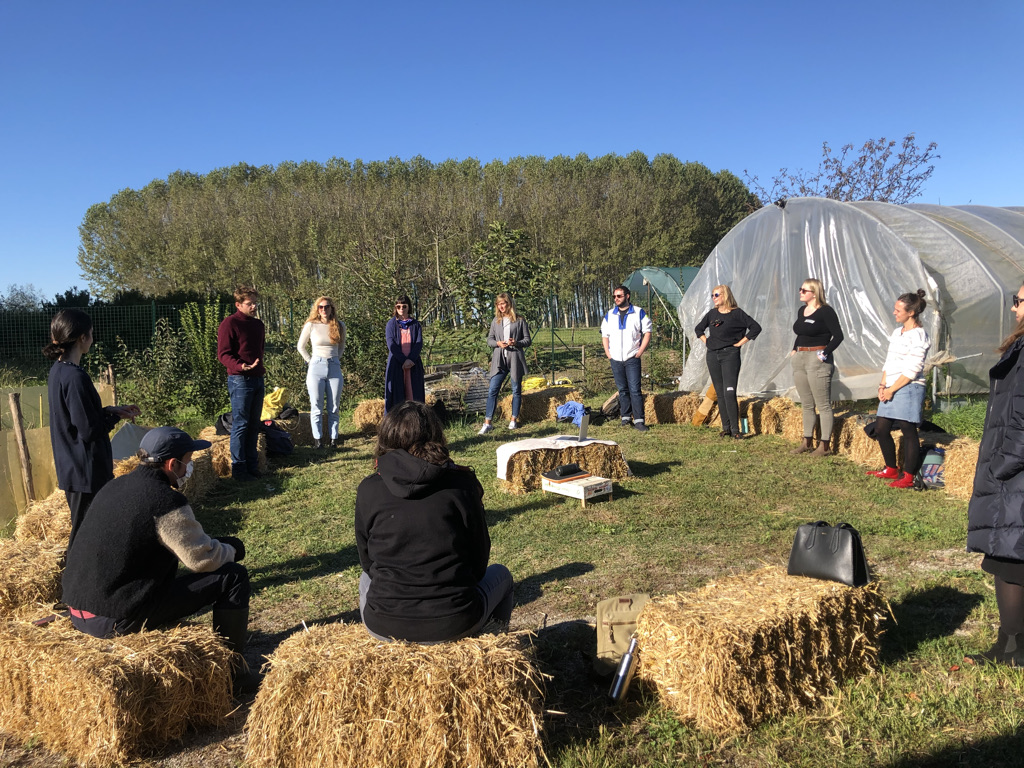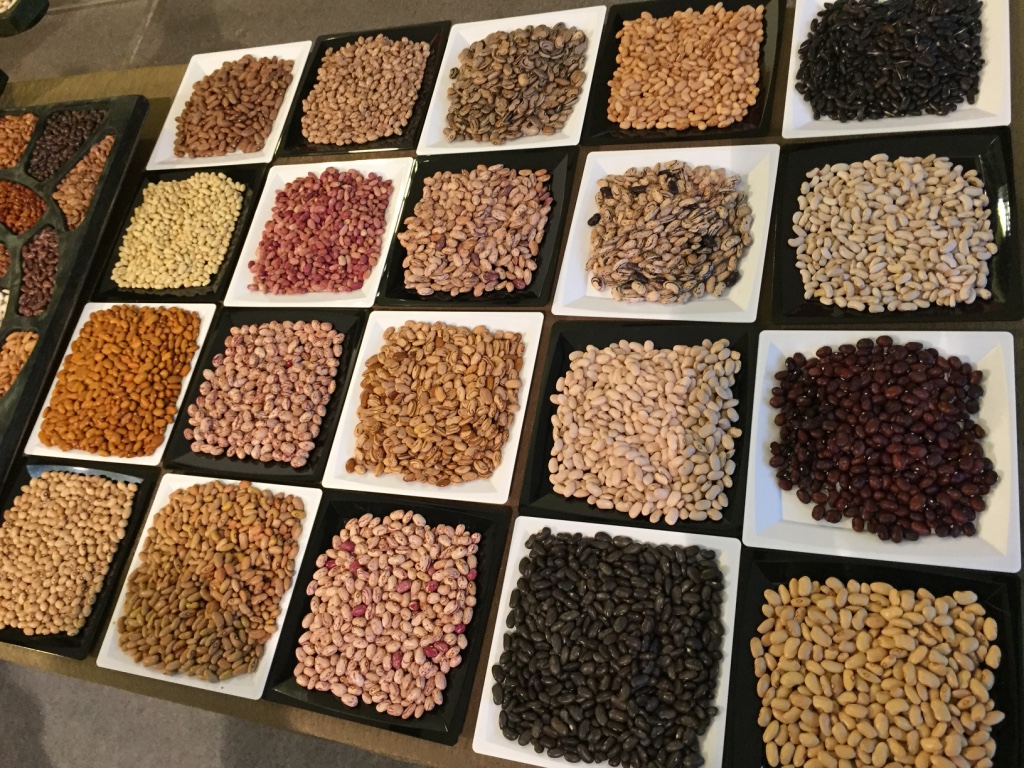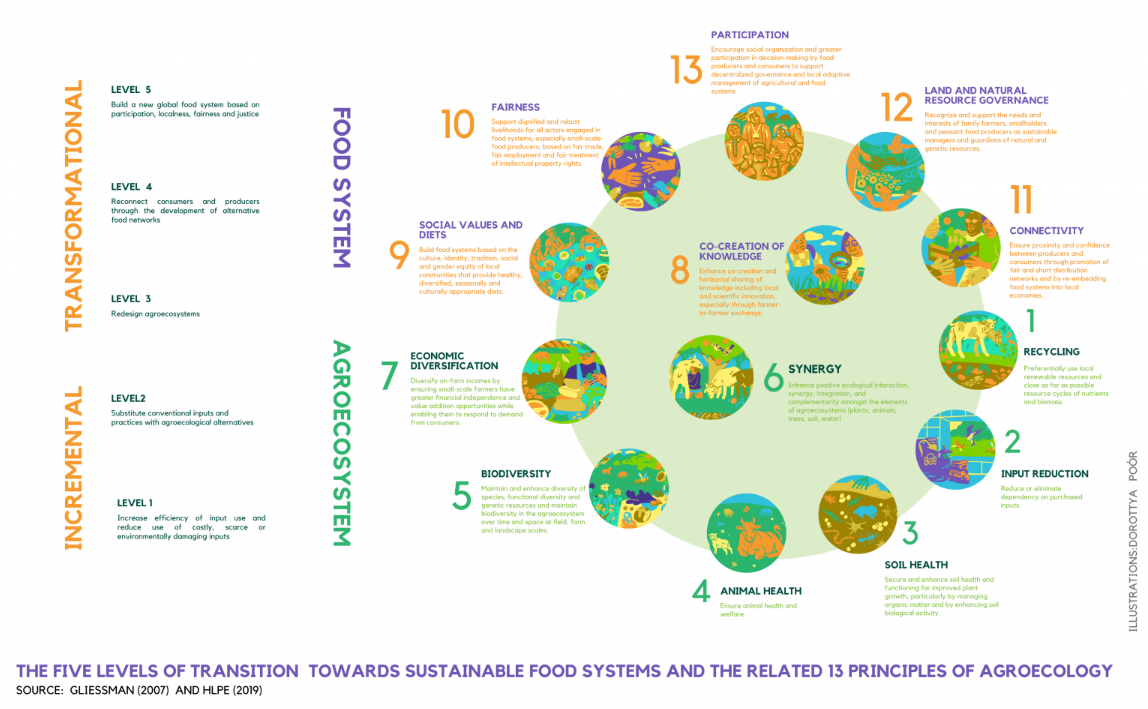
Picture by Alfred Grand, Grand Farm, Austria
What is agroecology?
"Agroecology is considered jointly a science, a practice and a social movement.
It encompasses the whole food system, from the soil to the organization of human societies. It is value-laden and based on core principles.
As a science, it prioritises action research, holistic and participatory approaches, and transdisciplinarity, including different knowledge systems.

Picture by Paola Migliorini
As a practice, it is based on the sustainable use of local renewable resources, local farmers’ knowledge and priorities, wise use of biodiversity to provide ecosystem services and resilience, and solutions that provide multiple benefits (environmental, economic, social) from local to global.
As a movement, it defends smallholders and family farming, farmers and rural communities, food sovereignty, local and short food supply chains, diversity of indigenous seeds and breeds, and healthy and quality food.
Agroecology acknowledges that the whole is more than the sum of its parts and fosters interactions between actors in science, practice and movements by facilitating knowledge sharing and action." (AEEU)

Picture by Paola Migliorini
Principles of agroecology

Agroecology includes thirteen principles that work for entire agri-food chains:
- Recycling. Preferentially use local renewable resources and close as far as possible resource cycles of nutrients and biomass.
- Input reduction. Reduce or eliminate dependency on purchased inputs.
- Soil heath. Secure and enhance soil health and functioning for improved plant growth, particularly by managing organic matter and by enhancing soil biological activity.
- Animal health. Ensure animal health and welfare.
- Biodiversity. Maintain and enhance diversity of species, functional diversity and genetic resources and maintain biodiversity in the agroecosystem over time and space at field, farm and landscape scales.
- Synergy. Enhance positive ecological interaction, synergy, integration, and complementarity amongst the elements of agroecosystems (plants, animals, trees, soil, water).
- Economic diversification. Diversify on-farm incomes by ensuring small-scale farmers have greater financial independence and value addition opportunities while enabling them to respond to demand from consumers.
- Co-creation of knowledge. Enhance co-creation and horizontal sharing of knowledge including local and scientific innovation, especially through farmer-to-farmer exchange.
- Social values and diets. Build food systems based on the culture, identity, tradition, social and gender equity of local communities that provide healthy, diversified, seasonally and culturally appropriate diets.
- Fairness. Support dignified and robust livelihoods for all actors engaged in food systems, especially small-scale food producers, based on fair trade, fair employment and fair
treatment of intellectual property rights.
- Connectivity. Ensure proximity and confidence between producers and consumers through promotion of fair and short distribution networks and by re-embedding food systems into local economies.
- Land and natural resource governance. Recognize and support the needs and interests of family farmers, smallholders and peasant food producers as sustainable managers and guardians of natural and genetic resources.
- Participation. Encourage social organization and greater participation in decision-making by food producers and consumers to support decentralized governance and local
adaptive management of agricultural and food systems.
Fact sheets on agroecology (from AEEU)
Factsheet on how to transition from conventional agriculture to agroecological practices
Factsheet on Soil fertility




